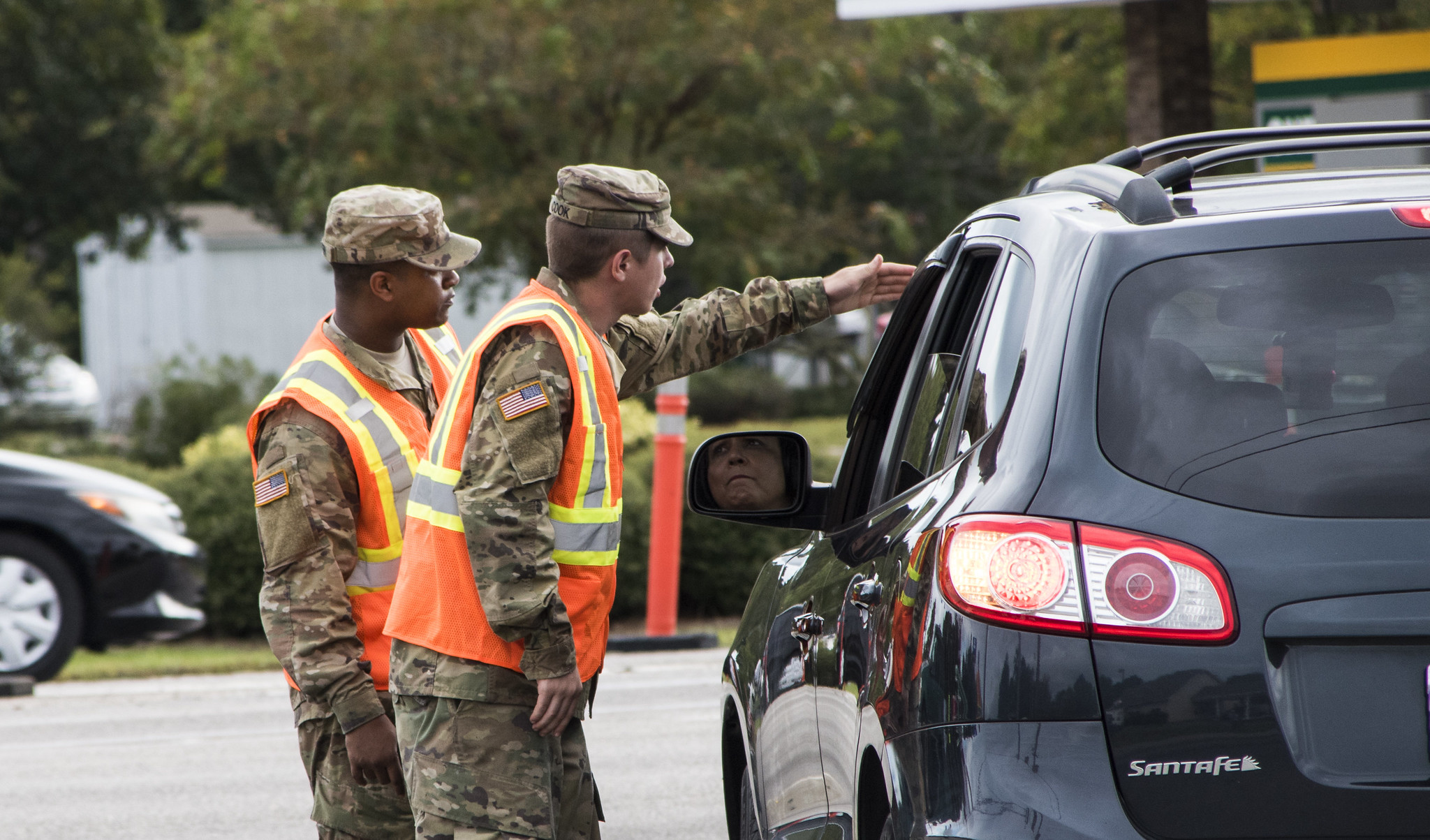Civil rights groups are suing South Carolina for a classist traffic enforcement policy that criminalizes poverty and unfairly buries its poorest residents under a mountain of debt to raise revenue for the state, the second such suit in as many years.
Attorneys for the American Civil Liberties Union and the Southern Poverty Law Center noticed an alarming pattern where drivers had their licenses revoked without notification and then were forced to fork over hundreds of dollars in additional fees just to get an appearance before a court or to reinstate their license. In Lexington County, South Carolina some drivers were even jailed for weeks and months at a time because they couldn't pay their fines.
The Palmetto State's DMV automatically suspends a person's driver's license for failing to pay a traffic ticket without allowing the driver to contest the ticket or negotiate a repayment plan. Then the agency tacks on a $100 license reinstatement fee and a $200 filing fee for each suspension on record if a driver appeals to get a hearing in front of a judge, according to the federal lawsuit brought by the American Civil Liberties Union and the Southern Poverty Law Center.
This state-sanctioned debt collection is unfortunately typical in the United States. More than 40 states have laws allowing the suspension or non-renewal of licenses when a driver fails to pay a traffic ticket. Penalties vary from state to state and town by town, but many keep up the practice to raise revenue for their diminished coffers when states instead could tax vehicles and fuel more stringently.
But about half a dozen states are beginning to repeal these debtor driver laws, and a New York legislator proposed a law in April allowing drivers to work out an installment plan for traffic tickets. Chicago is working to eliminate $1.3 billion in ticket debt — or $480 per resident — largely from unpaid vehicle registration sticker fees. And Las Vegas is allowing drivers to pay parking tickets with food donations for a month this fall.
There's no such clemency in South Carolina. So far the state's policy has revoked 190,000 drivers' licenses and many people can't afford the escalating bills, the lawsuit said. South Carolina is one of the poorest states in the nation with 17 percent of residents, or one in six people, living below the federal poverty line. Even families earning amounts above the federal poverty level can experience financial hardship that prevents them from paying their bills on time.
African-Americans are also more likely to have their license revoked under the state's traffic law. Blacks make up 28 percent of the state's population but comprise nearly half of the drivers with suspended licenses while whites comprise a third of the drivers whose licenses were revoked despite making up 69 percent of the state's population.
Wealthy drivers who can afford to shell out the fines view the policy as an annoyance but the state's poorest residents are forced to make a brutal choice because the state lacks decent transit options — either drive with a suspended license or forgo jobs in economic centers far from where they live.
Emily Bellamy, a plaintiff in the lawsuit, drove approximately 20 miles from Conway to Myrtle Beach to take high-paying jobs cleaning vacation condos and doing maintenance to support four children under the age of seven. Even though Myrtle Beach is one of the fastest growing metropolitan areas in the country, its public transit network is limited and unreliable. Without a license and due to the lack of transit service, Bellamy is choosing lower-paying work closer to home.
"She's forgoing opportunities she needs because she can't drive or she's paying for taxis and car service rides which are out of her budget," Nusrat Choudhury, racial justice program deputy director for the American Civil Liberties Union, told Streetsblog.
Once someone has his or her license revoked, the fines can escalate astronomically.
Janice Carter, 42, one of the plaintiffs in the case received a $129 speeding ticket two years ago. When she couldn't afford to pay it, her license was suspended without her knowledge. Now she'll have to pay $1,100 to cover past fines plus a $500 license reinstatement fee. If she wants to explain to a judge why she couldn't afford that bill it will cost her $800 to get a hearing.
“I’m not contesting it,” she told the Associated Press. “I’m just asking the DMV to give me a chance to explain my finances.”
Carter struggled for over a year to find consistent work to start paying down her debts. Some of the part-time work she does has been difficult because there isn't enough bus service to get from her home to those jobs. Seeing family and friends without using her car is even harder.
"She literally can't get to church on time there isn't a bus to get her there early enough," Choudhury said.
Expanding bus and rail service would certainly help. Bus ridership topped 12 million passengers statewide in 2011, but only 44 percent of public transit demands were met, leaving transit systems short by 15 million trips, according to a 2014 CDM Smith study. The state has historically underfunded transit, leaving providers in its four major cities to split $6 million annually among 27 different bus systems.
South Carolina could start by repealing the law entirely. Drivers deserve the ability to settle up their debts in a way that doesn't add to their financial burdens since the ability to pay depends on circumstance.
"The law results in a system with people who aren't paying because of poverty and what ends up happening is that can lead to additional tickets and fees, and then people can get trapped," Choudhury said.






